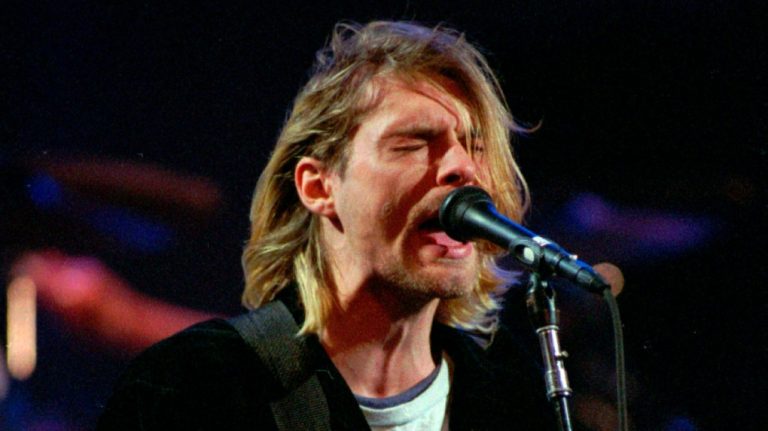Thirty years after his death on April 5, 1994, the influence and values of Kurt Cobain and his band Nirvana still resonate in culture and music today.
Nirvana was everywhere in the early '90s, just like Taylor Swift is everywhere today. But unlike Swift, who embraced and mastered the commercial side of her fame, Cobain was an anti-star of his era.
While Nirvana were certainly at the top of the industry, headlining sold-out festivals, Cobain clearly felt uncomfortable being in the corporate music business. He has expressed this discomfort in a variety of ways, from merchandise emblazoned with the words “corporate rock whores” to his disagreements with MTV and journalists. No Swift-style media finesse here.
Since 2010, the person responsible for the rights to Cobain's name and image has been his daughter Frances Bean Cobain. Meanwhile, Nirvana LLC is managed by a team that includes original band members Dave Grohl and Krist Novoselic.
These rights are expertly managed and controlled in a way that has the benefit of hindsight, demonstrating an understanding of what Nirvana stood for that could not have been achieved when the band was active, or Cobain was still alive.
I've often said that Nirvana was the last band to reach the top on their own terms. It didn't hurt that they embodied the rags-to-riches stories that the press loves so much. Cobain had an unhappy childhood and his art provided solace while he worked as a janitor and relied on his girlfriend to fund his band.
Cobain's relationship with fellow musician Courtney Love also attracted a lot of attention from the celebrity press, as did his struggles with mental health and addiction. Looking back at some of the supposedly supportive headlines at the time, it's clear how the press perpetuated myths and pressured an already vulnerable Cobain. I wonder if today's headlines would be so groundbreaking, or so preposterous.
It is not at all uncommon today for artists to cancel or postpone shows and tours in order to protect their mental health. Fans are no longer inclined to view this admission as weakness – in many ways it reinforces their devotion to the act.
This can be seen in the reactions to artists such as Lewis Capaldi and Sam Fender, who have postponed live shows to protect their mental health. In this regard, Cobain's death by suicide paved the way for press and fans alike to discuss musicians' mental health in a more serious manner.
It is important to note that the last two years of his life saw Cobain battle with addiction and depression. Obviously working with him would have been a lot of fun, but it was very difficult. For the five to six years that Nirvana shined, they shined very brightly. It must be said that they were rocked. Their music was simple, no-frills, rock and roll.
That the band did not tour with Guns N' Roses in 1992 may have been a boon to purists. Nirvana's music was a true antidote to the hair metal that had dominated rock music for the previous few years. Cobain took time off due to illness while they were supposed to be on that tour. In fact, Courtney Love says in the 2015 documentary Cobain: Montage of Heck, he just wanted to “stay home and shoot.” Metallica guitarist Kirk Hammett claims that Cobain “didn't like what Guns N' Roses stood for.”
The band's influence on fashion can also still be felt. Particularly in the prevalence of men in dresses in heavy rock bands like Ideals, as Cobain often did on stage.
The popular 'Flower Sniffin', Kitty Pettin', Baby Kissin', Corporate Rock Whores' T-shirt is now selling for more than £2,000. But in recent years, Nirvana LLC has granted the rights to print new merchandise to several more affordable brands, in keeping with Cobain's anti-elitist values. In 2019, they sued high-end fashion designer Marc Jacobs, when the brand released a T-shirt with a twist on X-eyed Nirvana's famous smiley face.
Today's Nirvana brand is clear in its values. It's hard not to believe that Cobain would have something to say about today's identity politics (Cobain once declared himself “gay in spirit and…maybe he could be bisexual” and called himself a feminist). A man for our time, in his time, so to speak.
As an expert on the music industry (particularly the independent side), it's clear to me that Cobain will still be a marketer's dream in 2024. Fortunately, the custodians of Cobain's brand continue to develop and protect his thoughts and ideas long after his tragedy. Death at only 27.
The Conversation is an Australian-based non-profit organization that sources articles from the academic and research community

